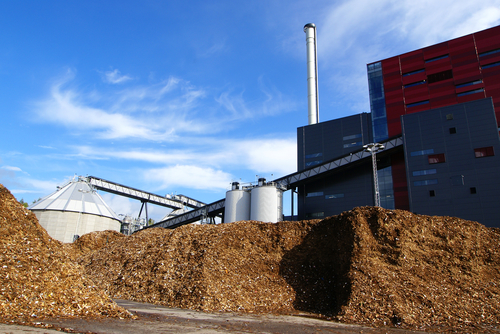Dutch to phase out subsidies for wood-fired power stations


The government is planning to phase out the use of subsidies for power stations which are powered by biomass, or which generate heat for city heating schemes.
Biomass is predominantly made up of wood chips and vegetable and fruit waste, but has come under fire as a source of fuel because of both high levels of carbon emissions and the over-use of wood, some of which is imported from the US.
The agreement decision to phase out the use of subsidies was taken at Friday’s cabinet meeting because there are, ministers agree, enough greener alternatives for generating both electricity and heat. This would be on condition the alternatives are both achievable and affordable, economic affairs minister Eric Wiebes has told MPs in a briefing.
The government will decide when subsidies should be phased out by the end of the year and has asked the environmental assessment agency PBL for its recommendations.
The PBL had said in January that the use of biomass may be unavoidable if the Netherlands is to meet the EU targets on energy neutrality. Without using biomass, the Netherlands will have to install wind turbines and solar panels more quickly than it is currently doing, and other difficult choices will have to be made, the PBL said.
In total, 628 biomass installations in the Netherlands will get some €11.4bn in subsidies over the next few years, the AD reported earlier.
Vattenfall
In June, Swedish state-owned energy company Vattenfall said it had decided to postpone plans to build the Netherlands’ biggest biomass fired power station because of the ongoing discussion about how green biomass actually is.
The plant was to be built in Diemen on the outskirts of Amsterdam, but both locals and the town council have major doubts about the project.
The first step in finalising the decision involves the Dutch government giving clarity about its plans and the role of biomass in reaching climate change targets, the company said.
The government’s advisory body SER has also recommended that subsidies for biomass power be phased out.
Despite the subsidy decision, the government ‘remains convinced that the use of biomass is necessary in the transition to a climate neutral and circular economy by 2030 and 2050.’
Thank you for donating to DutchNews.nl.
We could not provide the Dutch News service, and keep it free of charge, without the generous support of our readers. Your donations allow us to report on issues you tell us matter, and provide you with a summary of the most important Dutch news each day.
Make a donation